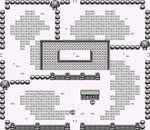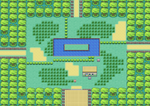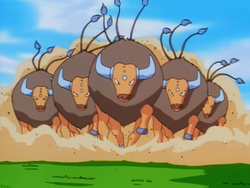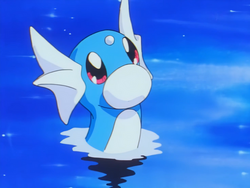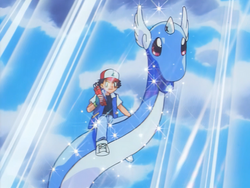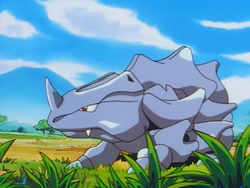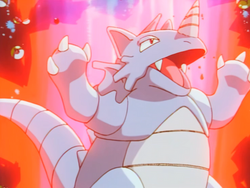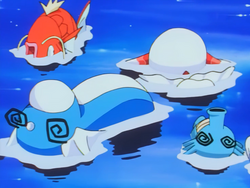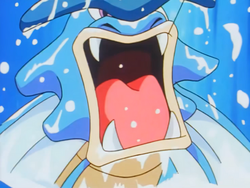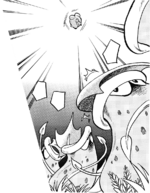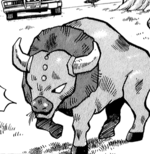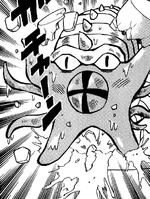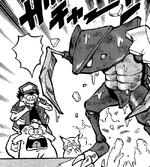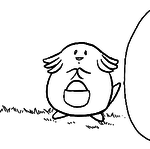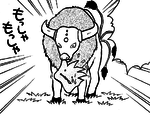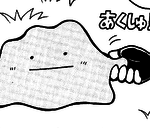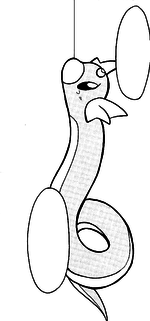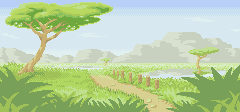
|
This article is incomplete.
Please feel free to edit this article to add missing information and complete it.
Reason: Missing entrance images and interior images for the Secret House
|
| Safari Zone
|
|
サファリゾーン
Safari Zone
|
| "Wild Missingno. appeared!"
|
|
|
|
| Map description:
|
An amusement park outside Fuchsia City where many rare Pokémon can be observed in the wild. Catch them in a popular game!FRLG
|
| Location:
|
North of Fuchsia City
|
| Region:
|
Kanto
|
| Generations:
|
I, III
|
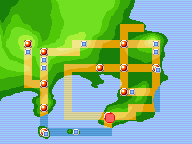
Location of Safari Zone in Kanto.
|
| Pokémon world locations
|
The Kanto Safari Zone (Japanese: サファリゾーン Safari Zone) is a special Pokémon preserve in Kanto that Trainers can enter to catch wild Pokémon. It is owned by Baoba.
For $500, the player can play the Safari Game (Japanese: サファリゲーム Safari Game) and receive 30 Safari Balls. Trainers are limited to 500RBY/600FRLG steps in the Safari Zone before the Game is over. A Safari Zone Exploration Campaign is also taking place, where the goal is for Trainers to find the Secret House (Japanese: トレジャーハウス Treasure House), located in the deepest area, Area 3. The prize for finding the house is HM03 (Surf).
In the Safari Zone, when a wild Pokémon appears, Trainers cannot send out Pokémon to battle it. Instead, Trainers must face Pokémon only with simple tools, and catching a Pokémon becomes much more reliant on luck, as Pokémon are able to run away from the Trainer at any time. Trainers may throw Bait to make a Pokémon less likely to run, but this also makes it harder to catch. Conversely, throwing Rocks will make a Pokémon easier to catch but more likely to run.
In Generation II, the Safari Zone has closed down while Baoba takes a vacation. In the contemporaneous Generation IV games, he has opened another one in Johto and Kanto's Pal Park is located here. In Pokémon: Let's Go, Pikachu! and Let's Go, Eevee!, GO Park is located here.
Areas
The Safari Zone is divided into four areas:
- The Center Area: where the player enters the Safari Zone
- Area 1: east from the Center Area
- Area 2: north from the Center Area
- Area 3: west from the Center Area
In the Generation I games, "Center Area" is actually used to refer to both the entrance area that acts as a hub to all the other areas, and the area east from this hub.
Safari Game
As with other Safari Games, Pokémon are made easier or harder to capture by modifying the Pokémon's catch rate. Pokémon can be in any of three states—angry, eating or neutral—with the angry state making them more likely to run but the eating state making them less likely to.
Generation I
At the start of an encounter, two counters—an "angry counter" and an "eating counter"—are set to 0. Whenever Bait is thrown, the angry counter is reset while the eating counter increases by a random value between 1 and 5 (but to no more than 255). The opposite occurs if a Rock is thrown: the eating counter is reset and the angry counter increases on the same basis. The catch rate is doubled (to no more than 255) whenever a Rock is thrown, but halved (rounded down) whenever Bait is thrown.
At the end of each turn, if either the angry or eating counter is nonzero, it is decreased by 1; if the angry counter is decreased to 0, the modified catch rate resets to the Pokémon's initial catch rate. A random value between 0 and 255 inclusive is generated, and if this is less than half of the Pokémon's Speed rounded down (if the Pokémon is eating), double the Speed (if the Pokémon is in a neutral state), or four times the Speed (if the Pokémon is angry), the Pokémon escapes. A Pokémon will also always escape if its Speed is 128 or more, even if it is eating.
Generation III
The Safari Game mechanics were overhauled to more closely resemble the one in the Hoenn Safari Zone. Like it, there is an additional "catch factor" that begins at 100/1275 of the Pokémon's catch rate (rounded down). Each species of Pokémon that appears in the Safari Zone also has its own "escape rate", unlike in the Hoenn Safari Zone, which is never modified. Bait cannot reduce the "catch factor" of a Pokémon below 3 and rocks cannot increase it above 20. Because of this, Chansey becomes easier to catch after being baited as its catch factor increases from 2 to 3, Pokémon with a base catch rate of 45 will not become harder to catch after bait has been thrown as their catch factor remains at 3, and Magikarp cannot become any easier to catch by throwing rocks as its catch factor is already 20.
Like Generation I, a Pokémon will be angry or eating whenever Bait or Rocks are thrown. If Bait is thrown, it will be "eating" for 1-5 turns, during which the catch factor is halved. If Rocks are thrown, it will be "angry" for 1-5 turns, during which the catch factor is doubled. Being "angry" or "eating" is mutually exclusive, though modifications to the catch factors will stack. Whenever a Safari Ball is thrown, the catch factor is converted back to a catch rate by multiplying by 1275/100 and rounding down. The amount of bait or anger a Pokémon has can stack if multiple rocks or bait are thrown. The amount cannot surpass 5 turns worth of either.
At the beginning of each turn a flee check will be completed. A random number from 0 to 99 is generated, and is compared to 5 times its "modified escape factor" if the random value is less, the Pokémon will escape at the end of the turn unless it is captured.
During a flee check turn the game will determine a Pokémon's "modified escape factor" 1275/100 of the escape rate (rounded down), which is doubled if the Pokémon is "angry" or quartered (rounded down) if the Pokémon is "eating". This value cannot be reduced below 1 which is equal to a 5% chance to flee. When a Pokémon is first encountered, its flee rate cannot be lower than 2.
| FR/LG Flee Rates*
|
| Pokémon
|
Base Flee Rate
|
Baited Flee Factor
|
Angered Flee Factor
|

|
25 (10%)
|
1 (5%)
|
2 (10%)
|
        
|
50 (15%)
|
1 (5%)
|
6 (30%)
|
      
|
75 (25%)
|
1 (5%)
|
10 (50%)
|

|
100 (35%)
|
1 (5%)
|
14 (70%)
|
     
|
125 (45%)
|
2 (10%)
|
18 (90%)
|
| FR/LG Base Catch Rates*
|
| Pokémon
|
Base Catch Rate
|
Catch Factor
|
Base Safari Catch Rate
(Per Ball)*
|

|
30
|
2
|
25 (4.9%)
|
     
|
45
|
3
|
38 (8.1%)
|

|
60
|
4
|
51 (10.7%)
|
 
|
75
|
5
|
63 (12.3%)
|

|
90
|
7
|
89 (19.8%)
|
  
|
120
|
9
|
114 (23.4%)
|
    
|
190
|
14
|
178 (40.1%)
|

|
225
|
17
|
216 (50.3%)
|
 
|
235
|
18
|
229 (50.3%)
|
 
|
255
|
20
|
255 (50.3%)
|
Bait Strat
A restriction that causes a Pokémon's "Catch Factor" to be a minimum of 3 after bait has been thrown, causes Chansey's catch rate to be increased from 25 (4.9% per ball) to 38 (8.09% per ball) after throwing bait. This means that throwing bait makes Chansey both easier to catch and less likely to flee. Similarly the Pokémon Kangaskhan, Scyther, Pinsir, Tauros, Dragonair, and Dratini all have catch rates that are unaffected by the use of bait. Due to this oddity players are able to increase their chances of successfully catching some Pokémon through the use of what has been called the "Bait Strat". By throwing two bait and then a sequence switching between a couple balls and then more bait players can keep a Pokémon's flee rate low by maximizing their chances that they will continue eating. Unfortunately, a Pokémon's flee check is preformed at the beginning of the turn, so bait will only come into effect the turn after it has been thrown. This leaves an inherent risk of a Pokémon fleeing before any balls have been thrown. Trainers brave enough to throw bait can find themselves with a 19.08% chance to catch Chansey per encounter as opposed to just 10.28% with balls alone.
|
|
| This video is not available on Bulbapedia; instead, you can watch the video on YouTube here.
|
Closing notices
In Generation II, the sign outside the Safari Zone contains a notice about it being closed in that reads:
The WARDEN is
traveling abroad.
Therefore, the
SAFARI ZONE is
closed.
In HeartGold and SoulSilver, the sign informs that since the Safari Zone is closed, the facility houses Pal Park instead.
There's a notice here...
The Safari Zone is closed.
Instead, we have Pal Park.
Items
| Item
|
Location
|
Games
|

|
Safari Ball ×30
|
For the Safari Game; cannot be kept
|
R B Y FR LG
|

|
Nugget
|
Center Area (hub), on the island (requires Surf)
|
R B Y FR LG
|

|
Leaf Stone ×2
|
- Center Area, three squares east of the Nugget (requires Surf) (hidden)
- Area 1, southwest of the rest house, on the southern plateau
|
FR LG
|

|
Carbos
|
Center Area (east), southwest of the rest house, on the southern plateau
|
R B Y
|

|
TM37 (Egg Bomb)
|
Center Area (east), in the patch of grass beside the water
|
R B Y
|

|
TM11 (Sunny Day)
|
Area 1, in the patch of grass beside the water
|
FR LG
|

|
Max Potion
|
Center Area (east)RGBY/Area 1FRLG, west of the northern plateau
|
R B Y FR LG
|

|
Full Restore
|
Center Area (east)RGBY/Area 1FRLG, southwest of the rest house
|
R B Y FR LG
|

|
Quick Claw
|
Area 2, near the center of the zone
|
FR LG
|

|
TM40 (Skull Bash)
|
Area 2, southwest of the rest house
|
R B Y
|

|
TM47 (Steel Wing)
|
Area 2, southwest of the rest house
|
FR LG
|

|
Protein
|
Area 2, northwest of the rest house
|
R B Y FR LG
|

|
Max Revive
|
Area 3, northwest of the Area 3 sign
|
R B Y FR LG
|

|
Max Potion
|
Area 3, in the patch of grass in the southwest area of the zone
|
R B Y FR LG
|

|
TM32 (Double Team)
|
Area 3, southeast of the Secret House
|
R B Y FR LG
|

|
Revive
|
Area 3, on the statue southeast of the Secret House (hidden)
|
R B Y
|

|
HM03 (Surf)
|
Area 3, from the man in the Secret House
|
R B Y FR LG
|

|
Revive
|
Area 3, four squares south and one square east of the door to the Secret House (hidden)
|
FR LG
|

|
Gold Teeth
|
Area 3, southeast of the sign asking to find them
|
R B Y FR LG
|
|
|
Pokémon
Generation I
Center Area
| Pokémon
|
Games
|
Location
|
Levels
|
Rate
|
|
|
R
|
B
|
Y
|
|
22
|
25%
|
|
|
R
|
B
|
Y
|
|
36
|
15%
|
|
|
R
|
B
|
Y
|
|
31
|
5%
|
|
|
R
|
B
|
Y
|
|
31
|
10%
|
|
|
R
|
B
|
Y
|
|
22
|
25%
|
|
|
R
|
B
|
Y
|
|
14
|
25%
|
|
|
R
|
B
|
Y
|
|
31
|
10%
|
|
|
R
|
B
|
Y
|
|
31
|
5%
|
|
|
R
|
B
|
Y
|
|
23
|
10%
|
|
|
R
|
B
|
Y
|
|
27
|
5%
|
|
|
R
|
B
|
Y
|
|
30
|
5%
|
|
|
R
|
B
|
Y
|
|
27, 32
|
15%
|
|
|
R
|
B
|
Y
|
|
22
|
15%
|
|
|
R
|
B
|
Y
|
|
24-25
|
20%
|
|
|
R
|
B
|
Y
|
|
24
|
15%
|
|
|
R
|
B
|
Y
|
|
25
|
15%
|
|
|
R
|
B
|
Y
|
|
20
|
10%
|
|
|
R
|
B
|
Y
|
|
23
|
1%
|
|
|
R
|
B
|
Y
|
|
7
|
1%
|
|
|
R
|
B
|
Y
|
|
22
|
4%
|
|
|
R
|
B
|
Y
|
|
23
|
4%
|
|
|
R
|
B
|
Y
|
|
23
|
4%
|
| Fishing
|
|
|
R
|
B
|
Y
|
|
5
|
100%
|
|
|
R
|
B
|
Y
|
|
10
|
50%
|
|
|
R
|
B
|
Y
|
|
10
|
50%
|
|
|
R
|
B
|
Y
|
|
15
|
25%
|
|
|
R
|
B
|
Y
|
|
15
|
25%
|
|
|
R
|
B
|
Y
|
|
15
|
25%
|
|
|
R
|
B
|
Y
|
|
5, 10
|
70%
|
|
|
R
|
B
|
Y
|
|
15
|
25%
|
|
|
R
|
B
|
Y
|
|
10
|
20%
|
|
|
R
|
B
|
Y
|
|
15
|
10%
|
| A colored background means that the Pokémon can be found in this location in the specified game. A white background with a colored letter means that the Pokémon cannot be found here.
|
Area 1
| Pokémon
|
Games
|
Location
|
Levels
|
Rate
|
|
|
R
|
B
|
Y
|
|
24
|
5%
|
|
|
R
|
B
|
Y
|
|
24
|
25%
|
|
|
R
|
B
|
Y
|
|
29
|
25%
|
|
|
R
|
B
|
Y
|
|
33
|
10%
|
|
|
R
|
B
|
Y
|
|
32
|
10%
|
|
|
R
|
B
|
Y
|
|
24
|
25%
|
|
|
R
|
B
|
Y
|
|
24
|
5%
|
|
|
R
|
B
|
Y
|
|
21
|
15%
|
|
|
R
|
B
|
Y
|
|
33
|
10%
|
|
|
R
|
B
|
Y
|
|
22
|
15%
|
|
|
R
|
B
|
Y
|
|
25
|
5%
|
|
|
R
|
B
|
Y
|
|
26
|
15%
|
|
|
R
|
B
|
Y
|
|
23, 25
|
20%
|
|
|
R
|
B
|
Y
|
|
22, 26
|
20%
|
|
|
R
|
B
|
Y
|
|
19
|
10%
|
|
|
R
|
B
|
Y
|
|
24
|
5%
|
|
|
R
|
B
|
Y
|
|
21
|
4%
|
|
|
R
|
B
|
Y
|
|
25
|
4%
|
|
|
R
|
B
|
Y
|
|
28
|
1%
|
|
|
R
|
B
|
Y
|
|
15
|
1%
|
|
|
R
|
B
|
Y
|
|
28
|
1%
|
|
|
R
|
B
|
Y
|
|
21
|
10%
|
| Fishing
|
|
|
R
|
B
|
Y
|
|
5
|
100%
|
|
|
R
|
B
|
Y
|
|
10
|
50%
|
|
|
R
|
B
|
Y
|
|
10
|
50%
|
|
|
R
|
B
|
Y
|
|
15
|
25%
|
|
|
R
|
B
|
Y
|
|
15
|
25%
|
|
|
R
|
B
|
Y
|
|
15
|
25%
|
|
|
R
|
B
|
Y
|
|
5, 10, 15
|
90%
|
|
|
R
|
B
|
Y
|
|
15
|
25%
|
|
|
R
|
B
|
Y
|
|
15
|
10%
|
| A colored background means that the Pokémon can be found in this location in the specified game. A white background with a colored letter means that the Pokémon cannot be found here.
|
Area 2
| Pokémon
|
Games
|
Location
|
Levels
|
Rate
|
|
|
R
|
B
|
Y
|
|
22
|
25%
|
|
|
R
|
B
|
Y
|
|
14
|
15%
|
|
|
R
|
B
|
Y
|
|
30
|
5%
|
|
|
R
|
B
|
Y
|
|
30
|
10%
|
|
|
R
|
B
|
Y
|
|
23
|
10%
|
|
|
R
|
B
|
Y
|
|
22
|
25%
|
|
|
R
|
B
|
Y
|
|
36
|
25%
|
|
|
R
|
B
|
Y
|
|
30
|
10%
|
|
|
R
|
B
|
Y
|
|
30
|
5%
|
|
|
R
|
B
|
Y
|
|
23
|
15%
|
|
|
R
|
B
|
Y
|
|
32
|
5%
|
|
|
R
|
B
|
Y
|
|
25, 27
|
20%
|
|
|
R
|
B
|
Y
|
|
20
|
15%
|
|
|
R
|
B
|
Y
|
|
16
|
5%
|
|
|
R
|
B
|
Y
|
|
26
|
15%
|
|
|
R
|
B
|
Y
|
|
25
|
10%
|
|
|
R
|
B
|
Y
|
|
26
|
4%
|
|
|
R
|
B
|
Y
|
|
28, 33
|
15%
|
|
|
R
|
B
|
Y
|
|
25
|
4%
|
|
|
R
|
B
|
Y
|
|
15
|
1%
|
|
|
R
|
B
|
Y
|
|
28
|
1%
|
| Fishing
|
|
|
R
|
B
|
Y
|
|
5
|
100%
|
|
|
R
|
B
|
Y
|
|
10
|
50%
|
|
|
R
|
B
|
Y
|
|
10
|
50%
|
|
|
R
|
B
|
Y
|
|
15
|
25%
|
|
|
R
|
B
|
Y
|
|
15
|
25%
|
|
|
R
|
B
|
Y
|
|
15
|
25%
|
|
|
R
|
B
|
Y
|
|
5, 10, 15
|
90%
|
|
|
R
|
B
|
Y
|
|
15
|
25%
|
|
|
R
|
B
|
Y
|
|
15
|
10%
|
| A colored background means that the Pokémon can be found in this location in the specified game. A white background with a colored letter means that the Pokémon cannot be found here.
|
Area 3
| Pokémon
|
Games
|
Location
|
Levels
|
Rate
|
|
|
R
|
B
|
Y
|
|
25
|
5%
|
|
|
R
|
B
|
Y
|
|
25
|
25%
|
|
|
R
|
B
|
Y
|
|
21
|
15%
|
|
|
R
|
B
|
Y
|
|
33
|
10%
|
|
|
R
|
B
|
Y
|
|
25
|
25%
|
|
|
R
|
B
|
Y
|
|
25
|
5%
|
|
|
R
|
B
|
Y
|
|
29
|
25%
|
|
|
R
|
B
|
Y
|
|
33
|
10%
|
|
|
R
|
B
|
Y
|
|
32
|
10%
|
|
|
R
|
B
|
Y
|
|
23
|
15%
|
|
|
R
|
B
|
Y
|
|
31
|
5%
|
|
|
R
|
B
|
Y
|
|
26
|
15%
|
|
|
R
|
B
|
Y
|
|
24, 26
|
20%
|
|
|
R
|
B
|
Y
|
|
22, 26
|
20%
|
|
|
R
|
B
|
Y
|
|
19
|
10%
|
|
|
R
|
B
|
Y
|
|
24
|
5%
|
|
|
R
|
B
|
Y
|
|
27
|
1%
|
|
|
R
|
B
|
Y
|
|
28
|
1%
|
|
|
R
|
B
|
Y
|
|
25
|
4%
|
|
|
R
|
B
|
Y
|
|
26
|
4%
|
|
|
R
|
B
|
Y
|
|
21
|
10%
|
| Fishing
|
|
|
R
|
B
|
Y
|
|
5
|
100%
|
|
|
R
|
B
|
Y
|
|
10
|
50%
|
|
|
R
|
B
|
Y
|
|
10
|
50%
|
|
|
R
|
B
|
Y
|
|
15
|
25%
|
|
|
R
|
B
|
Y
|
|
15
|
25%
|
|
|
R
|
B
|
Y
|
|
15
|
25%
|
|
|
R
|
B
|
Y
|
|
5, 10, 15
|
90%
|
|
|
R
|
B
|
Y
|
|
15
|
25%
|
|
|
R
|
B
|
Y
|
|
15
|
10%
|
| A colored background means that the Pokémon can be found in this location in the specified game. A white background with a colored letter means that the Pokémon cannot be found here.
|
Generation III
Center Area
| Pokémon
|
Games
|
Location
|
Levels
|
Rate
|
|
|
FR
|
LG
|
|
22
|
20%
|
|
|
FR
|
LG
|
|
31
|
5%
|
|
|
FR
|
LG
|
|
31
|
10%
|
|
|
FR
|
LG
|
|
22
|
20%
|
|
|
FR
|
LG
|
|
31
|
10%
|
|
|
FR
|
LG
|
|
31
|
5%
|
|
|
FR
|
LG
|
|
30
|
5%
|
|
|
FR
|
LG
|
|
22
|
15%
|
|
|
FR
|
LG
|
|
24-25
|
20%
|
|
|
FR
|
LG
|
|
25
|
20%
|
|
|
FR
|
LG
|
|
23
|
1%
|
|
|
FR
|
LG
|
|
23
|
4%
|
|
|
FR
|
LG
|
|
23
|
4%
|
| Surfing
|
|
|
FR
|
LG
|
|
20-40
|
100%
|
|
|
FR
|
LG
|
|
20-40
|
100%
|
| Fishing
|
|
|
FR
|
LG
|
|
5
|
100%
|
|
|
FR
|
LG
|
|
5-15
|
20%
|
|
|
FR
|
LG
|
|
5-15
|
60%
|
|
|
FR
|
LG
|
|
5-15
|
20%
|
|
|
FR
|
LG
|
|
15-35
|
4%
|
|
|
FR
|
LG
|
|
15-35
|
4%
|
|
|
FR
|
LG
|
|
15-25
|
40%
|
|
|
FR
|
LG
|
|
20-30
|
40%
|
|
|
FR
|
LG
|
|
15-25
|
15%
|
|
|
FR
|
LG
|
|
25-35
|
1%
|
| A colored background means that the Pokémon can be found in this location in the specified game. A white background with a colored letter means that the Pokémon cannot be found here.
|
Area 1
| Pokémon
|
Games
|
Location
|
Levels
|
Rate
|
|
|
FR
|
LG
|
|
24
|
5%
|
|
|
FR
|
LG
|
|
24
|
20%
|
|
|
FR
|
LG
|
|
33
|
10%
|
|
|
FR
|
LG
|
|
24
|
20%
|
|
|
FR
|
LG
|
|
24
|
5%
|
|
|
FR
|
LG
|
|
33
|
10%
|
|
|
FR
|
LG
|
|
22
|
15%
|
|
|
FR
|
LG
|
|
25
|
5%
|
|
|
FR
|
LG
|
|
26
|
20%
|
|
|
FR
|
LG
|
|
23, 25
|
20%
|
|
|
FR
|
LG
|
|
25
|
4%
|
|
|
FR
|
LG
|
|
28
|
1%
|
|
|
FR
|
LG
|
|
28
|
1%
|
| Surfing
|
|
|
FR
|
LG
|
|
20-40
|
100%
|
|
|
FR
|
LG
|
|
20-40
|
100%
|
| Fishing
|
|
|
FR
|
LG
|
|
5
|
100%
|
|
|
FR
|
LG
|
|
5-15
|
20%
|
|
|
FR
|
LG
|
|
5-15
|
60%
|
|
|
FR
|
LG
|
|
5-15
|
20%
|
|
|
FR
|
LG
|
|
15-35
|
4%
|
|
|
FR
|
LG
|
|
15-35
|
4%
|
|
|
FR
|
LG
|
|
15-25
|
40%
|
|
|
FR
|
LG
|
|
20-30
|
40%
|
|
|
FR
|
LG
|
|
15-25
|
15%
|
|
|
FR
|
LG
|
|
25-35
|
1%
|
| A colored background means that the Pokémon can be found in this location in the specified game. A white background with a colored letter means that the Pokémon cannot be found here.
|
Area 2
| Pokémon
|
Games
|
Location
|
Levels
|
Rate
|
|
|
FR
|
LG
|
|
30
|
20%
|
|
|
FR
|
LG
|
|
30
|
5%
|
|
|
FR
|
LG
|
|
30
|
10%
|
|
|
FR
|
LG
|
|
30
|
20%
|
|
|
FR
|
LG
|
|
30
|
10%
|
|
|
FR
|
LG
|
|
30
|
5%
|
|
|
FR
|
LG
|
|
23
|
15%
|
|
|
FR
|
LG
|
|
32
|
5%
|
|
|
FR
|
LG
|
|
25, 27
|
20%
|
|
|
FR
|
LG
|
|
26
|
20%
|
|
|
FR
|
LG
|
|
26
|
4%
|
|
|
FR
|
LG
|
|
28
|
1%
|
| Surfing
|
|
|
FR
|
LG
|
|
20-40
|
100%
|
|
|
FR
|
LG
|
|
20-40
|
100%
|
| Fishing
|
|
|
FR
|
LG
|
|
5
|
100%
|
|
|
FR
|
LG
|
|
5-15
|
20%
|
|
|
FR
|
LG
|
|
5-15
|
60%
|
|
|
FR
|
LG
|
|
5-15
|
20%
|
|
|
FR
|
LG
|
|
15-35
|
4%
|
|
|
FR
|
LG
|
|
15-35
|
4%
|
|
|
FR
|
LG
|
|
15-25
|
40%
|
|
|
FR
|
LG
|
|
20-30
|
40%
|
|
|
FR
|
LG
|
|
15-25
|
15%
|
|
|
FR
|
LG
|
|
25-35
|
1%
|
| A colored background means that the Pokémon can be found in this location in the specified game. A white background with a colored letter means that the Pokémon cannot be found here.
|
Area 3
| Pokémon
|
Games
|
Location
|
Levels
|
Rate
|
|
|
FR
|
LG
|
|
30
|
5%
|
|
|
FR
|
LG
|
|
22
|
20%
|
|
|
FR
|
LG
|
|
30
|
10%
|
|
|
FR
|
LG
|
|
22
|
20%
|
|
|
FR
|
LG
|
|
30
|
5%
|
|
|
FR
|
LG
|
|
30
|
10%
|
|
|
FR
|
LG
|
|
23
|
15%
|
|
|
FR
|
LG
|
|
32
|
5%
|
|
|
FR
|
LG
|
|
26
|
20%
|
|
|
FR
|
LG
|
|
25, 27
|
20%
|
|
|
FR
|
LG
|
|
28
|
1%
|
|
|
FR
|
LG
|
|
25
|
4%
|
| Surfing
|
|
|
FR
|
LG
|
|
20-40
|
100%
|
|
|
FR
|
LG
|
|
20-40
|
100%
|
| Fishing
|
|
|
FR
|
LG
|
|
5
|
100%
|
|
|
FR
|
LG
|
|
5-15
|
20%
|
|
|
FR
|
LG
|
|
5-15
|
60%
|
|
|
FR
|
LG
|
|
5-15
|
20%
|
|
|
FR
|
LG
|
|
15-35
|
4%
|
|
|
FR
|
LG
|
|
15-35
|
4%
|
|
|
FR
|
LG
|
|
15-25
|
40%
|
|
|
FR
|
LG
|
|
20-30
|
40%
|
|
|
FR
|
LG
|
|
15-25
|
15%
|
|
|
FR
|
LG
|
|
25-35
|
1%
|
| A colored background means that the Pokémon can be found in this location in the specified game. A white background with a colored letter means that the Pokémon cannot be found here.
|
Layout
In the spin-off games
Pokémon Pinball
In Pokémon Pinball, the Safari Zone appears on the Red and Blue tables; catchable Pokémon include Nidoran♀, Nidoran♂, Paras, Doduo, Grimer, Rhyhorn, Chansey, Scyther, Pinsir, and Tauros.
In the anime
Main series

The Safari Zone entrance in the
animeThe Safari Zone only appeared in the banned episode EP035. Due to this episode's international ban outside of Asia, the Safari Zone has never appeared in the English dub, although it was mentioned in the preceding episodes The Flame Pokémon-Athon! and The Kangaskhan Kid.
In the anime, the Safari Zone is run by a gun-toting warden, Kaiser. Like in the games, Trainers are restricted to only thirty Safari Balls per challenge. It is explained that this is the result of an incident decades ago where a rumor of the extremely rare Pokémon Dratini being spotted in the Safari Zone caused countless Trainers to recklessly catch excessive amounts of Pokémon in the area and completely wreck it in the process.
Upon entering the Safari Zone, Ash and his friends encountered Team Rocket, who challenged them to a contest to see who could catch the most Pokémon. However, while Ash was busy catching Pokémon, Team Rocket forced Kaiser to reveal Dratini's location. Ash and his friends managed to stop Team Rocket's plan to detonate a bomb in Dratini's home lagoon and discovered that the Dratini which Kaiser had met decades earlier had evolved into Dragonair and now had its own child Dratini. Before leaving the Safari Zone, Ash sent the Pokémon he had caught, namely a herd of Tauros and nothing else, to Professor Oak's Laboratory.
The Safari Zone is also seen in an early trailer for the second movie, where it is experiencing a harsh blizzard thanks to the unstable weather patterns caused by the fighting between the legendary birds. The scene, like most scenes from initial Pokémon movie trailers, is never actually used in the movie.
Pokémon
Pokémon Origins
The Kanto Safari Zone appeared in File 4: Charizard, when Red was seen confronting Chansey in there. Initially, he had trouble choosing between throwing a rock or a bait, almost causing the Chansey to run away, but eventually, he managed to catch it and add its data to his Pokédex.
Pokémon
In the manga
Pokémon Adventures
The Safari Zone appeared in Long Live the Nidoking! and A Hollow Victreebel, where Red visited it. Like all visitors, Red was forced to leave his Pokémon and Poké Balls to the entrance before starting his tour. Guided by two robotic Pidgey called Pidgebots, Red started a ride on a raft in a river running through the Safari Zone. When he noticed two Nidoking fighting over the love of a Nidoqueen, Red secretly pulled out a Poké Ball he had smuggled in and tried to catch one of the Nidoking with it. However, the ball missed the Nidoking and caught Nidoqueen instead. Enraged by this, the two Nidoking attacked Red's raft, destroying it and one of the Pidgebots.
While on the run, Red ended up getting caught by a group of Victreebel, who intended to eat him as a part of their nightly evolution ritual. However, thanks to his Poké Flute and a Poké Doll, Red managed to escape. Coming across one of the Nidoking from before again, Red caught one of the Victreebel and used it to weaken Nidoking enough for capture. The next morning, when Red was found by the Safari Zone officials, he was revealed to have caught a huge herd of Pokémon.
Pokémon
Pokémon Pocket Monsters
Red and his Pokémon visited the Safari Zone in Rampage At The Safari Zone?!. Like many other places they visit, it ended up getting wrecked by Clefairy.
Pokémon
Pokémon Zensho
The Safari Zone appeared in Fuchsia City, where Satoshi entered it. After saving a Ditto from a Tauros, Satoshi met Shigeru, who showed off all the Pokémon he had managed to catch at the Safari Zone. Soon after, Satoshi came across a Fisherman, who gave him a fishing rod. To the Fisherman's astonishment, Satoshi managed to reel in a rare Dratini, and asked for him to trade it for him. At first, Satoshi was reluctant, but when he noticed the Safari Zone Warden's missing dentures inside one of the Fisherman's Poké Balls, he accepted the offer.
On his way to return the dentures, Satoshi was ambushed and challenged to a battle by Gym Leader Koga. Satoshi's Ditto transformed into a duplicate of Koga, resulting in his Weezing getting confused and self-destructing, earning Satoshi the Soul Badge.
Pokémon
Trivia

The unused Safari Zone in Generation II, which uses
Evolution as its background music
- The background music is Evolution.
- In Generation I core series games, Viridian Forest and Safari Zone are the only areas with tall grass that is not always arranged in 2×2 tile patches.
- They are also the only areas where it is not possible to remove tall grass by using Cut. However, tall grass can be removed normally from these areas in Pokémon FireRed and LeafGreen.
- In the Generation II games, there is some data for a beta Safari Zone in Fuchsia City, but it was ultimately unused.
- In Pokémon Yellow, Tauros's encounter rate at the Safari Zone is 10%, as opposed to the other Generation I-based games, where its encounter rate is only 1% or 4%, depending on the Area. As the Yellow Version is highly based on the anime, this can be taken as a reference to the anime episode EP035, where Tauros were seen in large numbers around the Safari Zone, as opposed to its rarity in the previous games.
- Another reference to the aforementioned episode in Yellow may be the fact that Dragonair, which also appeared in EP035, is available in the Yellow Version, but not in the Red and Blue Versions.
- In Generation I, a scientist in a house in the top-right corner of Area 2 states, "You can keep any item you find on the ground here. But, you'll run out of time if you try for all of them at once!". However, so long as the player can use HM03 (Surf) as soon as they pick it up, it is actually possible to collect all possible items in the Safari Zone in one visit.
- Although bait makes Pokémon harder to catch, an NPC in the Area 3 rest house in Generation I says it makes them easier to catch.
- In the Western Generation I games, though the player receives 30 Safari Balls, it is only possible to catch 25 Pokémon: 5 to fill the party and 20 to fill a Box. In the Japanese games, however, the Box capacity is 30 Pokémon.
- In Pokémon Yellow, if the player tries to enter the Safari Zone with less than $500, they can enter the Safari Zone for all of their remaining money but they get a number of Safari Balls proportional to the amount paid. If they have no money, they can enter for free after multiple attempts to enter, but only receive a single Safari Ball.
- As this doesn't happen in Red and Blue, the player will be unable to get HM03 (Surf) nor the Gold Teeth if they run out of money.
|
|
| This video is not available on Bulbapedia; instead, you can watch the video on YouTube here.
|
In other languages
| Language
|
Title
|
| Chinese
|
Cantonese
|
狩獵地帶 Sáulihp Deihdaai *
野生原野區 Yéhsāang Yùhnyéhkēui *
野生原野區域 Yéhsāang Yùhnyéh Kēuiwihk *
野生動物園 Yéhsāang Duhngmahtyún *
野生公園 Yéhsāang Gūngyún *
|
| Mandarin
|
狩獵地帶 / 狩猎地带 Shòuliè Dìdài *
野生原野區 / 野生原野区 Yěshēng Yuányěqū *
丛林村 Cónglín Cūn *
草野區 Cǎoyěqū *
野生動物園 Yěshēng Dòngwùyuán *
神奇寶貝遊樂中心 Shénqí Bǎobèi Yóulè Zhōngxīn *
神奇宝贝游戏城 Shénqí Bǎobèi Yóuxì Chéng *
|
 Danish Danish
|
Safarizonen
|
 Finnish Finnish
|
Safarivyöhyke
|
 French French
|
Parc Safari
|
 German German
|
Safarizone
|
 Italian Italian
|
Zona Safari
|
 Korean Korean
|
사파리존 Safari Zone
|
 Norwegian Norwegian
|
Safarisonen
|
 Polish Polish
|
Strefa Safari (EP033-EP065) *
|
| Portuguese
|
 Brazil Brazil
|
Zona de Safári (manga)
Safari Zone (The Official Pokémon Handbook)
Zona Safári (The Official Pokémon Handbook)
|
 Portugal Portugal
|
Zona de Safari*
|
 Spanish Spanish
|
Zona Safari
|
 Swedish Swedish
|
Safarizonen
|
 Thai Thai
|
ซาฟารีโซน Safari Zone
|
 Vietnamese Vietnamese
|
Vùng Safari
|
|
|
|



